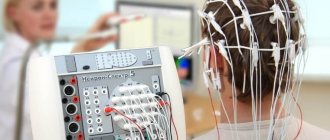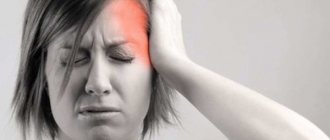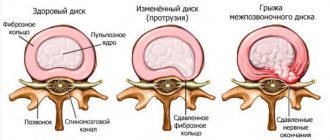Very often, in stressful situations, people begin to blush. Some people experience a slight blush on their face, but others' faces turn purple. Therefore, the question often arises: “Why does a person blush?” Redness of the skin of the face can be associated with various processes in the body or with situations occurring independently of you. Having studied all possible available facts, you can identify the reasons for this process and answer the question of how to stop blushing.
How not to blush when talking to people
Red cheeks are a sign of strong excitement and anxiety. This is how the body reacts to stress: due to increased production of adrenaline, the heart rate increases, blood vessels dilate , and the nervous system . You can reduce the reaction with regular training.
To overcome embarrassment when talking , you need to communicate more actively.
Eg:
- Talk to strangers more often - ask passers-by for directions, ask what time it is, compliment store clerks. Such mini-trainings will help develop communication skills and expand your circle of acquaintances.
- Change the format of communication with loved ones - instead of silently watching TV shows, have a frank conversation, discuss the events of the past day, talk about painful things. The training will improve communication skills and restore harmony in relationships.
At the initial stage there will definitely be mistakes. It is important to understand that there is nothing scary about them.
Why do you need a reaction in the form of redness?
Let's start with the fact that it is the face that turns red. Although there are cases when the redness also extends to the chest, what is typical is that it does not spread further. Researchers give the following explanation for this reaction: blushing is akin to a public apology, and moreover, it indicates sincerity, because such a reaction cannot be imitated.
As a powerful proof of the saying: “He lies and doesn’t even blush.” But above, we voiced another assumption: redness can be an indicator that a person is trying to hide something.
If you often blush, we can congratulate you - you have a special kind of intelligence! This refers to emotional intelligence. It begins to develop during those periods of childhood when children learn what is bad and what is good. If something goes against their ideas, they begin to react to it especially sharply.
Researchers have found that people who are more sensitive and prone to emotions blush much more often.
You and I have broken down into components how and why the reaction in the form of “rosy cheeks” occurs. And in general, it seems that everything is not as critical as it might seem at first.
But, there is a key point in our analysis, and it is like a weight on a scale, which pulls towards the fact that blushing is not very good, and first of all, such a formulation is associated with the internal feeling of the individual.
When a person blushes, he seems to expose himself to others. And in such a “naked” state he begins to get lost and embarrassed even more.
This, from a psychological point of view, can give rise to a phobia. And its consequences, to put it mildly, are depressing.
Increased self-esteem
Excessive modesty is a consequence of low self-esteem. To increase it, psychologists recommend using affirmations, or speech settings.
Basic forms:
- “I am confident in myself, others understand this”;
- “I deserve respect and understanding”;
- “When communicating with others, I am completely calm.”
Settings should be repeated throughout the day. The method works on the principle of self-hypnosis, gradually leveling self-esteem. To achieve a noticeable effect , the exercises must be performed for 2-3 months in a row.
Why you should look into the issue
Photo by Mary Babkova: Pexels
If this topic is relevant to you, and you start to blush at the slightest provocation, this article will help you understand this issue.
Moreover, if this topic does not concern you, then do not rush to “scroll through” it. The information presented will be useful to you due to the fact that we still “come into contact” with different people in one way or another. Understanding them often becomes a lifesaver in the process of establishing a dialogue with them.
Social experiment
Often people who are wondering how to stop blushing are overly worried about the response of others. Worries increase stress and lead to loss of self-control, although there is nothing to worry about. To get rid of fear , just ask the opinions of others.
The results may be unexpected:
- a person simply does not pay attention to the appearance of the speaker;
- the author's light blush seems cute to those around him;
- the topic of conversation is more important than the behavior and manner of speaking of the speaker.
Another simple way is to include the actor in yourself: imagine that you need to play the role of a confident and sociable person. The technique will help you bypass habitual attitudes and get rid of complexes.
Exaggerated blushing
A person susceptible to blushing experiences only two problems: the appearance of a ruddy complexion and the reaction of others to this. As numerous studies say, the second problem is the most serious, because the scarlet color confuses a person, and he tries to hide it or even get away from his interlocutors. This entails problems with society, because the situation calls into question communication with peers. In this case, social phobia develops.
Such behavior is wrong, since in any case the attitude of others towards the issue raised is unknown; maybe they don’t care or they like it. A good solution to this problem would be to ask your social circle how they feel about blushing when talking. The answers will differ from those expected. Indeed, in ninety-nine percent of cases, blushing only decorates the appearance, making it more prettier.
How to stop blushing for any reason
Experts recommend acting on the contrary - trying to intentionally blush 2-3 times a day. This task is not easy to complete: the rush of blood to the cheeks is an involuntary reaction. Awareness of this fact helps to get rid of guilt and overcome embarrassment.
You should avoid making decisions at lightning speed. The habit of solving problems “ on the run” is a common cause of severe anxiety. It’s enough to take a break, think about the situation in a calm environment, and you won’t have to blush.
Why do people blush: physiology and research
Capillaries are responsible for redness. When blood rushes to the skin, a person turns red. But what exactly triggers the process in the form of dilation of blood vessels, and why is this typical for some, while others, if they encounter this, do it in very rare cases? Let's figure it out!
First of all, such a reaction of the capillaries is directly related to the uniqueness of nervous regulation. In essence, redness, that is, a rush of blood to the skin, is a manifestation of:
- unrest
- strong emotions
And this, in turn, is interconnected with the situations in which the individual finds himself. He may blush when:
- he ashamed;
- he lies or doses the truth, revealing it in parts, and diligently tries to hide the other “parts”;
- feels angry;
- cannot control feelings. For example, he is unable to hide sympathy or, conversely, hatred.
Another reason can be considered dehydration.
Nervous system training
Increased nervous excitability can also be trained. Breathing exercises will help: deep breaths and exhalations. Sit in any comfortable position and straighten your spine. Inhale for four counts, exhale for four counts. Repeat 10-15 cycles.
Physical exercise has a beneficial effect not only on the condition of the figure, but also on the functioning of the nervous system. Jogging, Pilates, oriental practices are useful - they calm the mind and help gain control over emotions .
For those who have already overcome the initial embarrassment, extreme and team sports are suitable: after active recreation, a conversation with a stranger will seem like a mere trifle.
Psychological help
Why does the face turn red when excited? The brain receives a signal about danger, and the body produces this reaction. Psychologists recommend that individuals who are constantly embarrassed and fearful of society develop stress resistance. This skill will allow you to get out of any situation with a normal complexion, and not looking like an overripe tomato.
How to learn not to blush when talking?
- Why does a person blush when he is embarrassed? Due to the increase in blood pressure caused by excitement, blood actively rushes to the head. Try redirecting her flow. If you feel like you are going to blush, mentally imagine that you are putting your hands to the fire. You will be surprised to notice that your hands will turn red, not your face.
- If your face is constantly red from excitement, what should you do? Practice calmness. Before a serious public performance, go through all the stages of the event in your head and “write” the most favorable scenario for the development of events. Tune in to the positive and the embarrassment will subside.
- Started to blush? Pay special attention to this by saying: “Well, she’s blushing again!” or “Oh, you made me blush!” Believe me, those around you do not look at red cheeks and a purple neck, but form an opinion about your interlocutor based on his open character, interesting conversations and positive mood.
Love yourself for all your shortcomings and don’t try to look for problems where there are none!
You may be interested in: The connection between a person’s character and his favorite color How to properly accept compliments What kind of women do men choose as wives
effective ways to combat the problem
What to do to prevent your face from turning red? Consider the following tips.
- Learn calming tactics. The simplest thing is to take a couple of deep breaths. You can also try counting to 10. In a moment of excitement, remembering some pleasant moment in life helps relieve stress.
- More communication. How to stop blushing when talking? Try to communicate more with others. Shyness is characteristic of people who are accustomed to leading a reclusive life. Expand your circle of acquaintances, don’t be afraid to ask questions, take the initiative.
- Avoid inconvenience. How not to blush from embarrassment? Protect yourself from situations that make you panic and cause anxiety. For example, if you are afraid of public speaking, choose a field where you won't have to show off your talents in public. Embarrassment cannot always be overcome, but getting rid of constant discomfort is quite possible.
- Don't exaggerate the significance of the problem. In most cases, a person becomes embarrassed precisely because of his involuntary reaction. There is no need to concentrate your attention on the redness of the skin. It’s better to think about the benefits that the current event will bring, without paying attention to appearance.
- Gain confidence in yourself. What to do to avoid blushing? Cultivate confidence in your own abilities. Don't be afraid that your desires or aspirations will become an object of ridicule - this will not happen. Inner confidence will help you tune in to the positive and overcome the fear of communicating with others.
The process looks like this
The hormone adrenaline is produced, which is actively involved in deciding the question of “flight or fight.” It is adrenaline that prepares the body to overcome danger:
- increases breathing;
- increases heart rate;
- enlarges the pupils so that more visual information can be received;
- slows down the digestive process, as a result, energy goes to the muscles, where the blood vessels increase;
- The flow of oxygen and blood accelerates, moving faster to all corners of the body.
This is why a person blushes: some more, some less. Here everything depends on the specific activity of adrenaline.
Physiological problems
If the problem with blushing is not related to psychology, then it means that it is physiology. There is a well-known disease called rosacea. It is a vascular pathology that appears due to poor blood circulation. Thus, the face can turn red not only with excitement and embarrassment, but also with temperature changes, heat, frost and other factors, and sometimes no reason is needed for this.
The pathology itself is not dangerous. The consequences of neglect are dangerous. If you do not pay attention to it, the vessels will burst, forming spider veins, very noticeable and difficult to disguise. In addition to rosacea, there are other physiological pathologies for which you should definitely contact a qualified doctor to take action.
Causes of redness
The problem of “red cheeks” most often appears for one of the following reasons:
Cuperosis
Couperosis is said to occur when blood circulation in the surface layers of the skin is impaired. It is caused by damage to small vessels located in this part of the skin, due to which they lose their elasticity and become more susceptible to negative external influences. With rosacea, the skin almost always turns red: from tightness, from high temperatures, from low temperatures, and even for no particular reason. It looks like twigs, branches of thin red threads-vessels, and is usually localized on the nose and cheeks.
For rosacea, you need to select appropriate cosmetics, preferably with the help of a professional cosmetologist. This problem should not be ignored, because in a neglected state it can lead to the formation of “spider veins” (numerous burst small vessels) and the appearance of a noticeable capillary pattern, in which redness will always be visible on the face. The treatment of such manifestations of rosacea is quite long and complex, so it is better not to let it happen.
Circulatory or nervous system problems
We combined these two reasons into one because they require the same solution - seeing a doctor. Redness of the skin may be due to the fact that the blood circulation processes in the arteries and veins have been disrupted, which can be regarded as a symptom of various diseases. In addition, the frequent appearance of red spots due to vasodilation may indicate the need to adjust the functioning of the nervous system. Therefore, if other reasons that you often blush and ways to deal with them do not suit you, you should visit a therapist or neurologist.
Emotional condition
Finally, the most common and embarrassing (no matter how paradoxical it may sound) reason for frequent blushing lies in the psychological aspect. Shyness, embarrassment, shame, fear, self-doubt - all this makes you blush with or without reason, and almost uncontrollably. You might want to hide some emotion from this part of the spectrum, but that’s not the case - reddened cheeks immediately give away everything. Accordingly, to overcome this reason it is necessary to work with your embarrassment, embarrassment and self-esteem.











